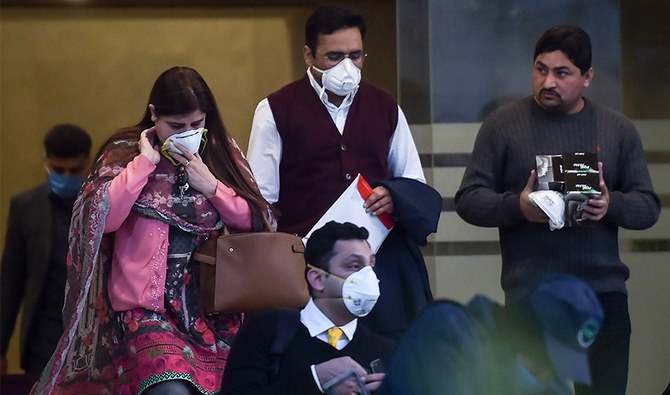ISLAMABAD: Pakistan is bracing for the novel coronavirus, as the World Health Organization on Thursday declared its outbreak a public health emergency of international concern.
We suggest several basic steps to help you protect yourself and others from the mysterious infection and from other viral diseases such as flu, which reign supreme during the cold season.
Although no cases have been reported in Pakistan, authorities are introducing precautionary measures, as at least 213 people have died from the new coronavirus, with about 9,800 infections cases confirmed, mainly in China.
On Friday, all flights to and from China have been suspended with immediate effect, while Islamabad’s National Institute of Health will be receiving screening kits from Japan to test samples that possibly contain the disease.
Coronaviruses are a family of zoonotic viruses – spread between animals and humans –which vary in extremity from the common cold and flu to Severe Acute Respiratory Syndrome (SARS).
Amid ongoing panic, which has also been fueled by the media, there are steps that can help you protect yourself and others from infection.
Wash hands frequently using alcohol-based hand rub or soap and water
In markets, avoid direct contact with animals
When you cough or sneeze, cover your mouth and nose with a flexed elbow or a tissue
Throw tissues away immediately and wash your hands, avoid direct skin contact with droplets of saliva or mucus from coughing and sneezing
Do not consume raw or undercooked animal products, including meat, milk or organs, both when traveling and at home
Handle animal products with caution and avoid cross-contamination of foods with raw, uncooked meat
For extra protection while in public spaces or on public transportation, wear air filtering masks – opt for 3Ply medical grade masks available at most pharmacies, dispose after each use
If you experience fever, cough and difficulty in breathing, seek medical attention immediately. If you have traveled prior to experiencing infection symptoms, inform your health providers to help them assess your risk.



















